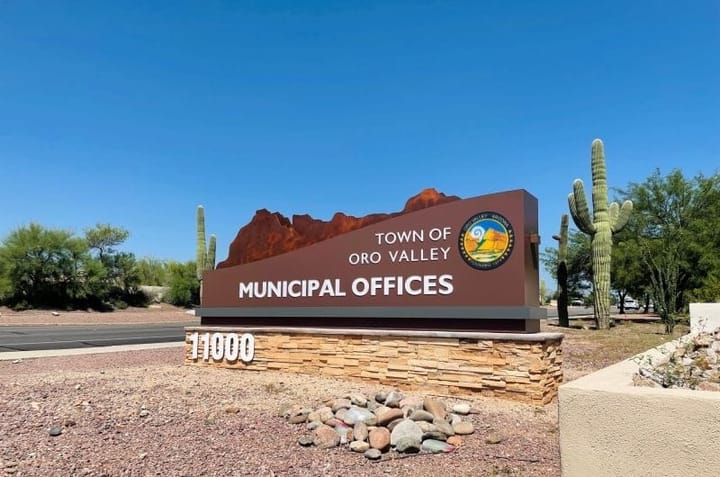Gov. Hobbs talks border security during Nogales visit
More than 6 million fentanyl pills and over 1,400 pounds of methamphetamine, cocaine and heroin have been seized through the Stopping Arizona's Fentanyl Epidemic initiative, which launched in June.

Gov. Katie Hobbs made a stop in Nogales Monday, to talk about progress in securing the border and reducing the flow of fentanyl into the United States.
Hobss told reporters that the dozens of national guardsmen sent to assist federal border agents in July have played a supporting role in helping with screenings at ports of entry.
Hobbs touted the success of the new Stopping Arizona’s Fentanyl Epidemic Initiative, a task force launched in June.
More than 6 million fentanyl pills and over 1,400 pounds of methamphetamine, cocaine and heroin have been seized through the initiative, which works to combat the fentanyl epidemic, strengthen border security and ensure essential services are being provided to victims.
Hobbs has allocated $15 million to this initiative and is deploying 40 members of the Arizona National Guard to Nogales to support its continued work.
“These Arizona service members have come here with one goal: to prevent dangerous drugs from coming into our state,” Hobbs said. “Task force SAFE isn't just a state initiative, it's an urgent response to the realities that our communities experience at the border and across the state.”
Arizona National Guard Major General Carrie Leland said their primary mission is to support United States Customs and Border Protection agents in drug interdiction efforts.
“If you look at that and how we've been partnering when we add state assets like task force staff to a federally funded entity or counter drug task force, we've really enhanced our capacity to partner,” Leland said. “We've enhanced our capacity to protect our communities.”
Hobbs also discussed Operation SECURE, launched in response to the ongoing border challenges facing the state. So far the operation has allocated $1 million to the Department of Homeland Security to establish a state border coordination office and deploy the National Guard. The funding will also be used to enhance border security, manage the consequences of large-scale migration and respond to humanitarian needs.
“We are having an impact in this fight. We are disrupting the fentanyl supply chains, we are stopping the precursors and production equipment coming into and transit in the U.S. and we are doubling down on our efforts to find and seize fentanyl at our ports of entry,” said CBP Senior Commissioner Troy Miller.
Department of Homeland Security Director Kim O’Connor told reporters that state troopers had seized more than 2,300 pounds of fentanyl so far this year, and from August through October, troopers took possession of nearly 6,500 pounds of illicit drugs.
“(Federal) funds help make it possible for our partners in local, state, tribal law enforcement to have the resources they need to help in keeping our communities safe,” O’Connor said.
In the last two years, CBP has seized more than 50,000 pounds of fentanyl, which Miller said is enough to produce more than 2 billion lethal doses.
“The people of Arizona and this nation want more than words, they want results. They want politicians to treat the border as more than a convenient place for a photo op. They want leaders who will take action,” Hobbs said. “Protecting our border is not a Republican or Democratic issue, it is an Arizona and an American issue.”
Tucson Spotlight asked Hobbs about her message to families who are afraid of the possible impacts of the state’s passage of Prop 314, which makes undocumented immigration illegal.
“As I've continued to say, I will not tolerate actions that harm Arizonans, that harm our communities, and quite honestly, divert resources from providing real security at our border,” she said. “I’m not going to comment on hypotheticals. We don't know what a mass deportation plan will look like, what resources it will involve. I'm not going to talk about specifics about a plan when I don't know what the specifics are.”
Isabela Gamez is a University of Arizona alum and Spotlight reporter. Contact her at gamezi@arizona.edu.
Susan Barnett is Deputy Editor of Tucson Spotlight and a graduate student at the University of Arizona. She previously worked for La Estrella de Tucson. Contact her at susan@tucsonspotlight.org.
Tucson Spotlight is a community-based newsroom that provides paid opportunities for students and rising journalists in Southern Arizona. Please support our work with a paid subscription.





